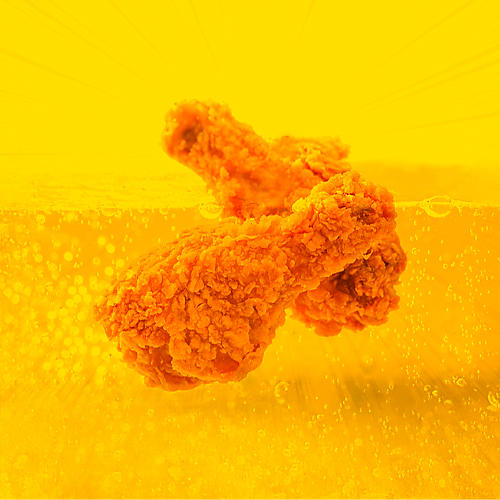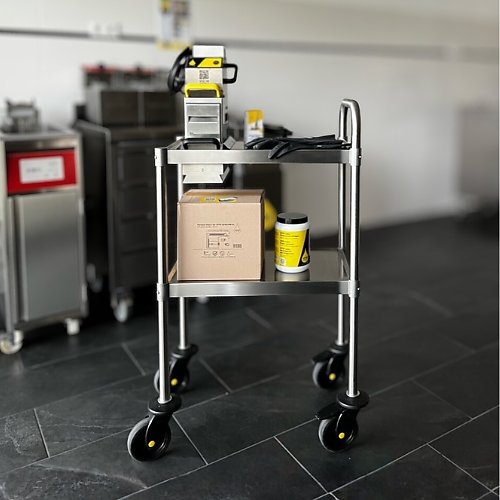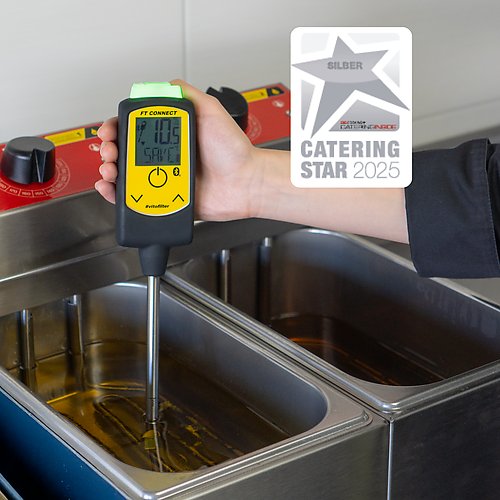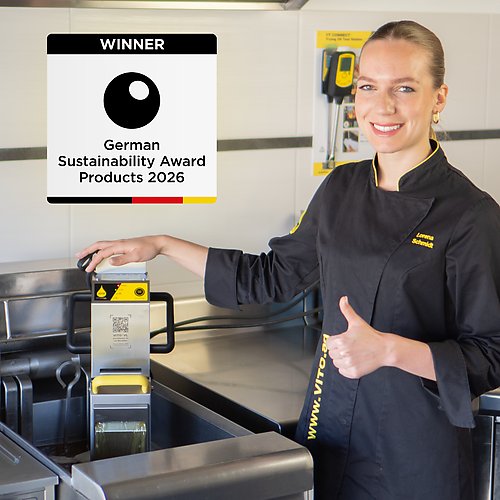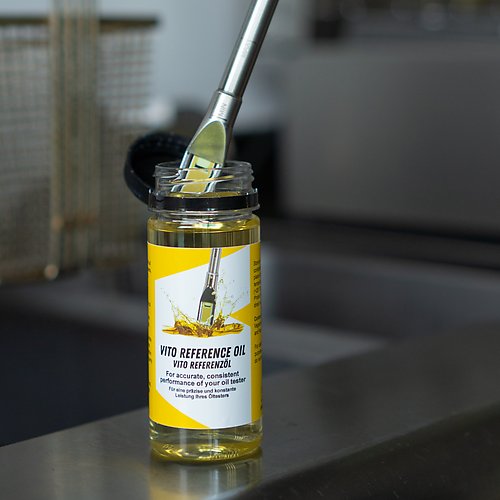So, picture this. You’re in ancient Egypt, it’s 2500 BCE, and you’ve just caught yourself a fish from the Nile. What do you do? You fry it, and for that, you’d need the basics like fire and oil, which gives your food that satisfying crisp and enhances the flavour.
Yes, the Egyptians were already frying food thousands of years ago. And guess what? They were using olive and sesame oil. And not just for food, but also for medicine, rituals, and all that religious stuff they were into. Frying in oil wasn’t just about making food tasty. It was part of their everyday life.
But here’s the thing. Oil doesn’t stay clean forever. Even the Egyptians probably realized this. So, while we don’t know for sure if they filtered their oil, it’s a safe bet they did something to keep it usable, like straining out chunks of food with a cloth or letting it sit until the particles settled at the bottom. Not perfect, but those were the options back then.
Fast-forward a few hundred years
Now let’s jump to ancient Greece and Rome. These guys were frying up snacks like “scriblita,” a type of Roman pastry made of moist dough dipped into boiling animal fat. People have been loving fried snacks for thousands of years, and it only got better from here.
Frying spread like wildfire. The Romans were frying on the streets, the Greeks were perfecting the art of olive oil, and then, during the Middle Ages, frying got a little fancier. Chefs started coating food in flour or egg before frying it. Think about your favourite fried chicken. This was the beginning of that crispy, delicious goodness.
The Middle East: Deep-frying masters
Meanwhile, in the Middle East, frying was reaching new heights. Chefs in the region perfected the art of deep-frying, creating crispy delights like baklava and other pastries. They were experts at controlling oil temperatures to achieve that perfect light and crispy texture. This mastery of frying showed that oil was more than just a cooking medium – it was a tool for creating culinary art.
Enter the potato
Now here’s a plot twist. When explorers found the potato in South America, they had no idea they were holding the future of fried food in their hands. By the 1600s, the Belgians had figured out how to fry them into French fries. And just like that, the world’s obsession with fried potatoes began. Thanks, Belgium.
But there was a problem...
With all this frying going on, there was one little issue. Oil doesn’t stay fresh forever. Food bits burn, the oil gets gross, and suddenly, you’re eating fries that taste like old fish. Not cool.At first, people tried straining the oil, but it wasn’t great and was dangerous, as harmful particles stayed in the oil, making it toxic in the long term. They needed a better way to keep their oil clean. Enter the deep fryer in the 1900s. Restaurants could now fry food consistently and faster, but the oil still got dirty over time, leading to potential health risks and a decline in food quality.
Welcome to the Modern Age: VITO to the rescue
Now, let’s talk about today. With frying oil being a key part of fast food, restaurants needed something more advanced. And that’s where VITO came in. VITO took the idea of filtering oil and made it smart, efficient, and simple. The journey began when Andreas Schmidt, VITO's founder, saw how poor frying practices led to bad food quality and waste in kitchens. After deep market research, Andreas launched the first VITO filter in 2002. Designed for ease of use and maximum efficiency, VITO became a game-changer in oil filtration, helping restaurants cut costs and improve food quality—by pressing a single button.
Here’s what makes VITO special:
- Your Oil Lasts Longer: Instead of throwing it out oil every couple of days, VITO’s system cleans the oil, so you can use it for up to twice as long. That means less waste and more savings.
- Better-Tasting Food: Clean oil means better-tasting food. No one wants their fries tasting like burnt oil from previous batches. With VITO, your oil stays fresh, so your food comes out crispy and flavourful, exactly as it should.
- It Saves You Money: The longer your oil lasts, the less you need to buy. Simple math. It’s good for your wallet, and it’s good for the planet.
- It’s Safe and Easy: Frying can be messy and risky. VITO makes it safer by filtering the oil quickly and efficiently, without the need of straining it manually by hand —in just 4.5 minutes, you’re back to frying.
The Future of frying
Frying has come a long way, from ancient Egypt’s olive oil to VITO’s filtration systems in modern kitchens. But one thing hasn’t changed: we love fried food. And thanks to smart innovations, we can enjoy it without wasting tons of oil or sacrificing flavour.So next time you hear the sizzle of something frying in hot oil, just remember – it’s part of a history that goes back thousands of years. And thanks to technology like VITO, we’re frying smarter than ever before.
 Algeria
Algeria  Argentina
Argentina  Australia
Australia  Austria
Austria  Bangladesh
Bangladesh  Belgium
Belgium  Bolivia
Bolivia  Brazil
Brazil  Bulgaria
Bulgaria  Canada
Canada  Chile
Chile  China
China  Colombia
Colombia  Costa Rica
Costa Rica  Croatia
Croatia  Cyprus
Cyprus  Denmark
Denmark  Egypt
Egypt  Estonia
Estonia  Finland
Finland  France
France  Germany
Germany  Great Britain
Great Britain  Greece
Greece  Guatemala
Guatemala  Honduras
Honduras  Hong Kong
Hong Kong  Hungary
Hungary  Iceland
Iceland  India
India  Indonesia
Indonesia  International
International  Ireland
Ireland  Israel
Israel  Italy
Italy  Jamaica
Jamaica  Jordan
Jordan  Kosovo
Kosovo  Kuwait
Kuwait  Latvia
Latvia  Lebanon
Lebanon  Lithuania
Lithuania  Macedonia
Macedonia  Malta
Malta  Mexico
Mexico  Mongolia
Mongolia  Morocco
Morocco  Myanmar
Myanmar  Netherlands
Netherlands  New Zealand
New Zealand  Norway
Norway  Oman
Oman  Pakistan
Pakistan  Panama
Panama  Peru
Peru  Philippines
Philippines  Poland
Poland  Portugal
Portugal  Romania
Romania  Russian Federation
Russian Federation  Saudi Arabia
Saudi Arabia  Senegal
Senegal  Singapore
Singapore  Slovakia
Slovakia  Slovenia
Slovenia  South Africa
South Africa  Spain
Spain  Sweden
Sweden  Switzerland
Switzerland  Syria
Syria  Taiwan
Taiwan  Thailand
Thailand  Turkey
Turkey  United Arab Emirates
United Arab Emirates  United States
United States 